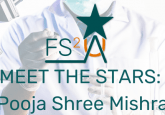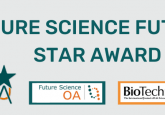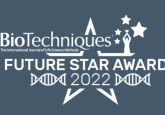Future Science Future Star Award 2020: Meet the judges
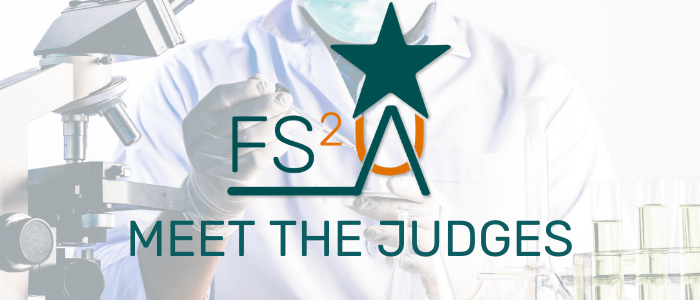
We are excited to announce our judging panel for the 2020 Future Science Future Star Award.
Ian A Blair – University of Pennsylvania (USA), Future Science OA Senior Editor
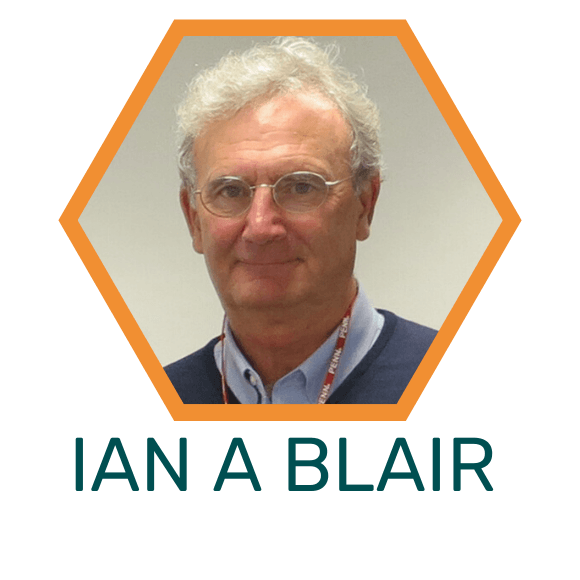 Ian Blair received his PhD in Organic Chemistry in 1971 from Imperial College of Science and Technology (London, UK) under the mentorship of the 1969 Nobel Laureate, Sir Derek H.R. Barton. He was appointed as the A.N. Richards Professor of Pharmacology at University of Pennsylvania in 1997 and Director of a new Center for Cancer Pharmacology. In 2002, Blair was appointed as Vice-Chair of the Department of Systems Pharmacology and Translational Therapeutics.
Ian Blair received his PhD in Organic Chemistry in 1971 from Imperial College of Science and Technology (London, UK) under the mentorship of the 1969 Nobel Laureate, Sir Derek H.R. Barton. He was appointed as the A.N. Richards Professor of Pharmacology at University of Pennsylvania in 1997 and Director of a new Center for Cancer Pharmacology. In 2002, Blair was appointed as Vice-Chair of the Department of Systems Pharmacology and Translational Therapeutics.
In 2014, he became Director of the NIEHS-funded Penn Superfund Research and Training Program Center. Blair is an expert in the use of mass spectrometric methods for the structural elucidation and quantification of endogenous biomolecules. His current research is involved with the development of biomarkers in order to establish genetic/phenotype correlations and to assess the interaction between genes and exposure to environmental chemicals. He is particularly interested in the regulation of cellular oxidative stress and how this underpins mechanisms involved in carcinogenesis, cardiovascular disease, and neurodegeneration. Blair discovered electron capture atmospheric pressure chemical ionization, a technique that makes it possible to conduct high sensitivity quantitative analyses of chiral biomolecules.
He is a Fellow of the American Association for the Advancement of Science and the American Association of Pharmaceutical Scientists. He received the 2011 Eastern Analytical Award for Outstanding Achievements in Mass Spectrometry. Blair is on the editorial boards of Future Science OA, Molecular and Cellular Proteomics, Journal of Lipid Research and Chemical Research in Toxicology. He has published 329-refereed manuscripts – they have been cited 13,970 times – and he has an h-index of 59.
Ananda Bandyopadhyay – Bill & Melinda Gates Foundation (WA, USA)
 Ananda Bandyopadhyay is a Medical Epidemiologist and Public Health Professional with a career interest in facilitating disease eradication and elimination. Ananda is currently employed as a Senior Program Officer for Polio with the Bill & Melinda Gates Foundation and is responsible for the management of a complex vaccine research portfolio to support data generation for “polio endgame” policy formulation.
Ananda Bandyopadhyay is a Medical Epidemiologist and Public Health Professional with a career interest in facilitating disease eradication and elimination. Ananda is currently employed as a Senior Program Officer for Polio with the Bill & Melinda Gates Foundation and is responsible for the management of a complex vaccine research portfolio to support data generation for “polio endgame” policy formulation.
In his current role, Bandyopadhyay is leveraging his experience in public health and epidemiology to drive new research studies for polio vaccines and environmental surveillance across four continents.
Since gaining his medical degree from Calcutta National Medical College (India) in 2004, he has worked in key positions at various organizations such as the World Health Organization/National Polio Surveillance Project (India), Harvard School of Public Health (MA, USA) and the State Department of Health at Rhode Island (USA).
Bruno da Rocha-Azevedo – UT Southwestern Medical Center (TX, USA)
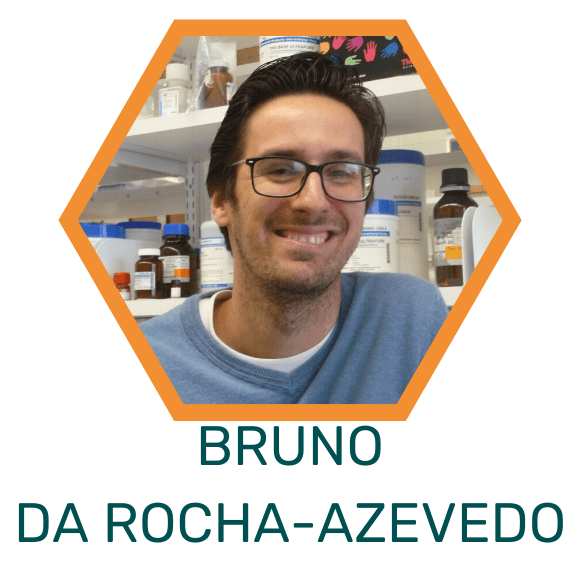 Bruno da Rocha-Azevedo is a Senior Research Scientist in the Department of Biophysics at UT Southwestern Medical Center in Dallas, Texas. Bruno studied aspects of cell-extracellular matrix interactions in 2D and 3D environments during his graduate and postdoctoral research and now he uses single-molecule imaging and computational approaches to study receptor behavior on the surface of live endothelial cells.
Bruno da Rocha-Azevedo is a Senior Research Scientist in the Department of Biophysics at UT Southwestern Medical Center in Dallas, Texas. Bruno studied aspects of cell-extracellular matrix interactions in 2D and 3D environments during his graduate and postdoctoral research and now he uses single-molecule imaging and computational approaches to study receptor behavior on the surface of live endothelial cells.
Watch this video with Bruno where he discusses more about his research with single-molecule imaging.
Ruth Kennedy – University of Leeds (UK)
 Ruth Kennedy is currently researching B-cell lymphomas in the lab of Ulf Klein at the University of Leeds, following her PhD within the head and neck cancer research group at the University of Hull (UK). Her PhD focused on head and neck cancer chemo-radiotherapy regimens utilizing microfluidic technology to maintain and interrogate biopsies.
Ruth Kennedy is currently researching B-cell lymphomas in the lab of Ulf Klein at the University of Leeds, following her PhD within the head and neck cancer research group at the University of Hull (UK). Her PhD focused on head and neck cancer chemo-radiotherapy regimens utilizing microfluidic technology to maintain and interrogate biopsies.
Ruth obtained a first class (Hons) degree in Biological Sciences from Lancaster University (UK) during which time she spent a year at the University of Wollongong (NSW, Australia). An early career researcher herself, Ruth is a member of the Young Ambassador Panel of Future Science OA, which supports the award.
Marjorie Pizarro-Guajardo – University Andrés Bello (Santiago, Chile)
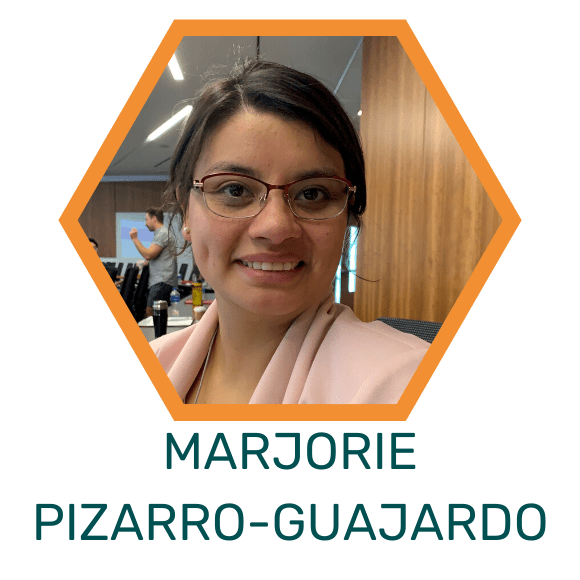 Winner of the 2019 Future Science Future Star award, Marjorie Pizarro-Guajardo studied Molecular Biotechnology as an undergraduate at the University of Chile (Santiago), inspired by an interest that her high school biology professor helped her to find. In 2011, she started to study the anaerobic pathogen Clostridium difficile, the pathogen responsible for nosocomial diarrhea, and how the spores contribute to the infection process.
Winner of the 2019 Future Science Future Star award, Marjorie Pizarro-Guajardo studied Molecular Biotechnology as an undergraduate at the University of Chile (Santiago), inspired by an interest that her high school biology professor helped her to find. In 2011, she started to study the anaerobic pathogen Clostridium difficile, the pathogen responsible for nosocomial diarrhea, and how the spores contribute to the infection process.
She has a high level of passion for her work and after 1 year as Research Assistant was accepted in the PhD program of Biotechnology in the University Andrés Bello (Santiago, Chile), where her work focused on the development of a strategy to remove C. difficile spores from the host to make a therapy that can improve the clearance of the infection.
Hear more from Marjorie in her 2019 winner’s interview, available here.
Nominations are still open for this year’s award; do you know an early career researcher that deserves credit? Nominate them here.
